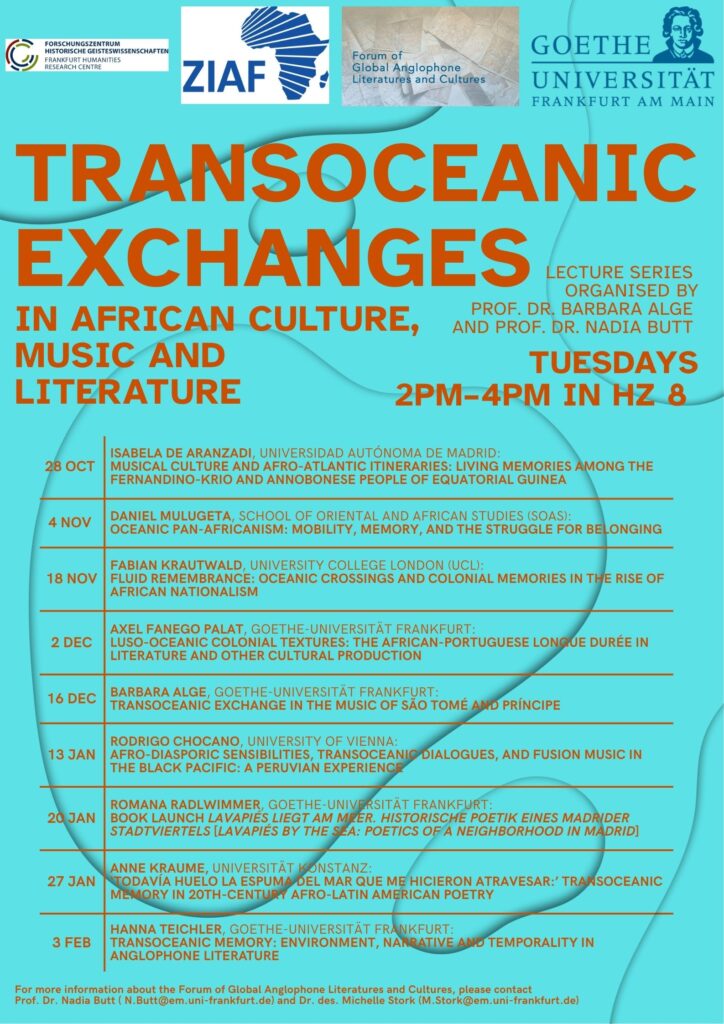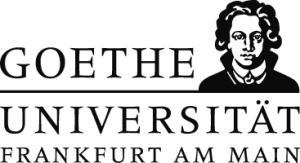Moving Cultures, Transcultural Encounters
Tuesday, 18 November 2025, 2pm-4pm CET
Campus Westend, Hörsaalzentrum, room HZ 8
Co-organised by Prof. Dr. Nadia Butt and Prof. Dr. Barbara Alge, funded by ZIAF.

The lecture series is part of the Forum of Global Anglophone Literatures and Cultures.
Fabian Krautwald (University College London)
After the Second World War, anticolonial activists across Africa began to imagine new forms of belonging and authority, seeking to emancipate themselves from colonial tutelage. Their imaginations drew on, and often re-invented, precolonial traditions, but they were equally shaped by precedents set during the colonial occupation of their homelands. At the same time, African activists achieved a hitherto unprecedented degree of mobility after 1945 that took them to European colonial metropoles as well as to Asia and the Americas. For these activists, the resulting encounters with the global experience of colonialism and imperialism served as reminders of their own people’s struggle against foreign rule.
This lecture considers how the movement across oceans of anticolonial activists from eastern and southern Africa as well as their exchanges and correspondence influenced the rise of African nationalism, focusing on the cases of Namibia and Tanzania. I argue that these movements of people, letters, and ideas reveal what I call fluid remembrance: while later ideologies of nationalism revolved around purportedly fixed identities, the period after the Second World War involved a dynamic and shifting re-interpretation of belonging shaped by African activists’ peripatetic life in exile. Their movement prompted evocations of the colonial past, which they incorporated into their evolving nationalist programs. Drawing on archival and oral history research, the lecture thereby traces the ways in which oceanic crossings served as reminders of colonial history and promises of a decolonized
Bio Note:
Fabian Krautwald serves as a Lecturer in African History at University College London, which he joined in 2024. He works and teaches on the social, political, cultural, economic, and intellectual history of Africa from the late nineteenth to the early twenty-first century. He is especially interested in comparative and transnational histories, which he explores in eastern and southern Africa based on vernaculars such as Swahili and Otjiherero. Before coming to UCL, he held postdoctoral fellowships at Binghamton University in upstate New York and at Princeton University, where he also completed his PhD. He is currently completing his first book manuscript, which explores the relationship between postcolonial sovereignty and memories of colonialism based on the example of former German colonies in Africa.


